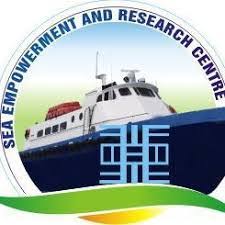The Sea Empowerment and Research Centre (SEREC) has linked the decline of Nigeria’s steel industry to poor infrastructure at the nation’s ports.
It said that the collapse of Ajaokuta and related plants had compelled Nigeria to rely on imports for maritime infrastructure.
This is contained in its September bulletin made available on Wednesday in Abuja by its Head of Research, Eugene Nweke.
“Neglect of the steel industry and related sectors cripples shipbuilding, repair yards, and port infrastructure,” it noted.
The News Agency of Nigeria (NAN) recalls that the Minister of Steel Development, Prince Shuaibu Abubakar, said President Bola Tinubu’s administration was determined to address the challenges facing the steel industry.
SEREC said that failure to integrate the steel industry prevents growth in shipyards, ports and marine equipment production.
It called for Ajaokuta and Delta Steel to be treated as strategic assets for shipbuilding, dry docks, and marine infrastructure.
It noted that recurring congestion at functional western ports, undeveloped ports, abandoned fishing harbours and underdeveloped inland waterways hampers trade facilitation.
The organisation decried that Nigeria’s maritime and blue economy remains underdeveloped in spite vast resources, while revenue leakages and poor enforcement continued to erode state income.
“Nigeria underperforms in West and Central Africa despite being Africa’s largest economy and now Chair of the World Customs Organization Council.
“Billions in potential maritime earnings are unrealised, undermining Nigeria’s quest to diversify from oil, and shipbuilding, logistics, and fisheries remain untapped sources of youth employment,” it stated.
SEREC noted the overdependence on foreign operators, leading to the domination of foreign vessels in cabotage and offshore trade, thereby exporting jobs and profits.
The organization recommended the establishment of a Blue Economy Delivery Unit reporting directly to the Presidency to coordinate across ministries and develop measurable Key Performance Indicators (KPIs).
This, it said, should include Gross Domestic product (GDP) contribution, jobs created and annual revenue mobilised.
It called for incentives to support private-led marine industrial clusters through tax relief and credit access, alongside the deployment of maritime domain awareness tools such as satellites, drones among others monitoring to curb revenue leakages.
It further recommended investment in human capital, including expanding seafarer training to export skilled labour globally similar to the Philippines model alongside the establishment of marine vocational centres for welders, divers, ship repairers, and aquaculture specialists.
SEREC also urged the government to provide incentives for indigenous ship ownership and operation and to attract Public-Private Partnership investments in fishing terminals, inland ports and green shipyards.
The organization recommended the creation of a Blue Economy Development Fund with strict transparency and performance audits, leveraging sovereign wealth, multilateral loans and maritime levies for sustainable financing.
“Nigeria’s blue economy promises remain broken, not for lack of potential but due to chronic policy failures, weak enforcement and the neglect of related sectors like steel.
“With the National Policy on Marine and Blue Economy now approved, government must pivot from rhetoric to results.
“The stakes are high: billions in lost revenue, millions of jobs, and Nigeria’s reputation as Africa’s maritime hub,” it said



